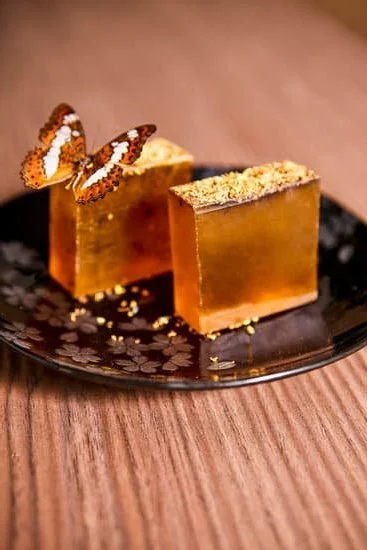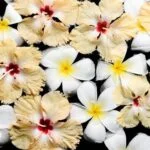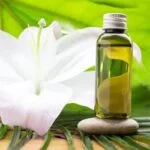Aromatherapy has gained popularity in recent years as a natural and holistic approach to promoting relaxation and overall well-being. One of the key tools used in aromatherapy is the diffuser, which disperses essential oils into the air. However, with concerns about safety always at the forefront, many people wonder if aromatherapy diffusers are safe to use.
Before delving into the details of different types of diffusers and potential safety concerns, it is essential to understand what an aromatherapy diffuser is. Simply put, it is a device that helps disperse essential oils into the air so that they can be inhaled or absorbed through the skin. This method allows for easy inhalation of aromatic molecules, which can have beneficial effects on mood, stress levels, and overall health.
Aromatherapy itself involves the use of essential oils extracted from various plant sources to enhance physical and psychological well-being. The benefits of aromatherapy are vast and include relaxation, stress relief, improved sleep quality, enhanced focus, and even pain management. With these potential benefits in mind, it becomes crucial to explore whether aromatherapy diffusers are safe to use in order to fully enjoy these advantages without any adverse effects.
Understanding Different Types of Aromatherapy Diffusers
Aromatherapy diffusers come in various types, each with its own unique way of dispersing essential oils into the air. It is important to understand the differences between these types to make an informed decision when purchasing a diffuser. Here, we will explore the four main types of aromatherapy diffusers: ultrasonic, nebulizing, heat-based, and evaporative.
Ultrasonic Diffusers
Ultrasonic diffusers are one of the most popular types of diffusers on the market. They work by using electronic frequencies to create vibrations that break down essential oils into microparticles. These microparticles are then released into the air as a fine mist along with water vapor.
Ultrasonic diffusers not only disperse aroma throughout the room but also double as humidifiers, which can be beneficial especially in dry climates or during winter months. However, it is important to note that these diffusers may require regular cleaning and maintenance to prevent buildup and ensure their safe use.
Nebulizing Diffusers
Nebulizing diffusers are another commonly used type of aromatherapy diffuser. They work by using pressurized air or gas to atomize essential oils into tiny droplets that are then released into the air as a mist. Unlike ultrasonic diffusers, nebulizing diffusers do not require water or heat.
This allows for a more concentrated dispersion of essential oils, making them ideal for therapeutic use or if you prefer a strong and immediate scent. However, because nebulizing diffusers do not dilute essential oils with water or heat, they may consume oils more quickly compared to other types.
Heat-Based Diffusers
Heat-based diffusers utilize heat or electricity to warm up essential oils and release their aroma into the air. These types of diffusers often come in the form of ceramic or electric heat diffusers, lamp rings, or aromatherapy candles. Heat-based diffusers are relatively simple to use and maintain, making them a popular choice for beginners.
However, it is important to note that the heat can alter the chemical composition of essential oils, potentially decreasing their therapeutic benefits. Additionally, some individuals may find the heat too intense or uncomfortable.
Evaporative Diffusers
Evaporative diffusers work by allowing air to naturally evaporate essential oils from a surface or through ventilation. These diffusers typically use a fan or a natural air current to disperse the scent throughout a space. They are easy to use and require minimal maintenance since they do not involve water, heat, or electricity. However, evaporative diffusers tend to have a more subtle aroma compared to other types and may not be as effective in larger rooms.
Potential Safety Concerns with Aromatherapy Diffusers
Aromatherapy diffusers are generally considered safe to use, but it is important to be aware of potential safety concerns. While diffusers can provide numerous benefits, such as relaxation and stress relief, there are a few risks to consider.
One potential safety concern is essential oil toxicity. Essential oils are highly concentrated plant extracts, and using them improperly or in excessive amounts can lead to adverse reactions. Some essential oils may cause skin irritation, allergic reactions, or even respiratory problems when used inappropriately or by individuals with certain sensitivities.
It is important to always dilute essential oils properly before using them in a diffuser and to follow recommended guidelines for safe usage. It is also advised to conduct a patch test on the skin before applying essential oils topically or using them in a diffuser.
Additionally, some individuals may have allergies to specific essential oils. Common allergens include lavender, peppermint, eucalyptus, and citrus oils. If you or anyone in your household has known allergies or sensitivities to any particular essential oils, it is crucial to avoid using those oils in your diffuser.
To ensure the safety of aromatherapy diffusers and the essential oils used with them, it is recommended to carefully select reputable brands that offer high-quality and pure products. Researching the company’s sourcing practices and quality control methods can help you make an informed decision about which brands are reliable.
By understanding potential safety concerns associated with aromatherapy diffusers and taking precautions such as diluting essential oils properly and selecting reputable brands, you can enjoy the benefits of aromatherapy while minimizing any risks involved.
Assessing the Safety of Essential Oils Used in Diffusers
Exploring the quality and purity of essential oils
When it comes to assessing the safety of aromatherapy diffusers, it is crucial to also evaluate the essential oils being used in these devices. The quality and purity of essential oils can vary greatly, and this can have a direct impact on their safety. It is important to choose reputable brands that prioritize high-quality ingredients and follow strict manufacturing standards.
Essential oils should be sourced from plants that are grown without the use of harmful pesticides or synthetic fertilizers. Organic certification can provide assurance that the plants used for extracting essential oils have been cultivated under specific guidelines. Look for brands that conduct third-party testing to verify the authenticity and purity of their essential oils.
The importance of selecting reputable brands and conducting research
Selecting reputable brands is not only about ensuring the safety of essential oils but also considering ethical practices such as fair trade partnerships with farmers and sustainable sourcing methods. Take the time to research brands, read reviews, and consult experts or aromatherapists who can recommend trustworthy companies.
Additionally, be cautious when buying essential oils from third-party sellers, especially online platforms where counterfeits are more prevalent. It is always safest to purchase directly from established retailers or manufacturers who provide detailed information about their sourcing, production process, and testing methods.
Label transparency and industry regulations
Label transparency is another important consideration when assessing the safety of essential oils used in diffusers. Reputable brands will clearly label their products with relevant information such as botanical names, country of origin, extraction methods, batch numbers, and expiration dates. This allows consumers to make informed choices based on their specific needs and preferences.
It is worth noting that there currently aren’t strict regulations governing the aromatherapy industry. This lack of oversight means that some misleading claims or inaccurate labeling may exist. Be skeptical of products that claim miraculous health benefits or cure-all properties. Stick to brands that provide clear and realistic information about their oils.
By being diligent in researching and selecting reputable brands, consumers can ensure they are using high-quality essential oils that are both safe and effective for their aromatherapy diffusers.
Safety Tips for Using Aromatherapy Diffusers
Using aromatherapy diffusers can be a safe and effective way to enjoy the benefits of essential oils in your home. However, it is important to use them properly and take necessary safety precautions. Here are some safety tips to keep in mind when using aromatherapy diffusers:
Proper usage and maintenance
- Always read the manufacturer’s instructions before using a diffuser and follow them carefully.
- Place the diffuser on a stable surface away from children and pets.
- Clean your diffuser regularly according to the manufacturer’s recommendations to prevent buildup of residue or mold.
Dilution ratios
- Most essential oils should be diluted before using them in a diffuser. Follow the recommended dilution ratios provided by reputable sources or manufacturers.
- Avoid using undiluted essential oils, as they can cause skin irritation, allergic reactions, or other adverse effects.
Essential oils to avoid
- Some essential oils may not be suitable for diffusion due to their potential toxicity or irritant properties. These include but are not limited to wintergreen, camphor, pennyroyal, and bitter almond oil.
- If you have any concerns about specific essential oils, consult with an aromatherapist or healthcare professional before use.
Ventilation
- Ensure that the room where you are using the diffuser is well-ventilated.
- If using a nebulizing diffuser, it is advisable to limit exposure time as these diffusers release a concentrated amount of essential oil into the air.
Allergic reactions
- Some individuals may have allergies or sensitivities to certain essential oils. If you experience any adverse reactions such as difficulty breathing, rash, or swelling after using a certain oil in your diffuser, discontinue use immediately and seek medical attention if necessary.
It is important to note that the safety and effectiveness of aromatherapy diffusers can vary depending on individual circumstances. If you have any underlying health conditions or concerns, it is advisable to consult with a healthcare professional before incorporating aromatherapy into your routine. By following these safety tips and using diffusers responsibly, you can enjoy the benefits of aromatherapy while minimizing potential risks.
Evaluating the Impact of Aromatherapy Diffusers on Indoor Air Quality
Aromatherapy diffusers have gained popularity in recent years as a way to enhance the atmosphere of a space and promote wellness through the use of essential oils. However, it is important to consider the potential impact of these diffusers on indoor air quality. In this section, we will explore how aromatherapy diffusers can affect air quality and humidity levels in a room.
When using an aromatherapy diffuser, it releases tiny particles of essential oils into the air. These particles can be inhaled and potentially have an impact on air quality. The type of diffuser used can influence how these particles are distributed throughout the room. For example, ultrasonic diffusers use water to disperse the essential oils as a fine mist, whereas nebulizing diffusers break down the oils into even smaller particles for more widespread distribution.
One consideration when evaluating the impact of aromatherapy diffusers on indoor air quality is humidity levels. Some types of diffusers increase the humidity level in a room while others do not have this effect.
Evaporative diffusers, for instance, use a fan to blow air over a pad or filter containing essential oils, which does not add any moisture to the air. On the other hand, heat-based diffusers can potentially raise humidity levels because they heat up water or oil to release essential oil vapors.
To get a better understanding of how different aromatherapy diffusers affect indoor air quality, it is also important to consider the size of the room in which they are being used. Larger rooms may require more powerful or multiple diffusers to distribute essential oil particles evenly throughout the space.
Additionally, when using a powerful nebulizing diffuser that releases a significant amount of particles into the air quickly, it’s important to ensure adequate ventilation in order to prevent any potential buildup.
Overall, while aromatherapy diffusers can enhance ambience and promote relaxation through scent, it’s important to consider their potential impact on indoor air quality. By understanding the different types of diffusers and how they distribute particles, as well as considering humidity levels and room size, users can make more informed decisions about using diffusers in their space.
| Factors | Impact on Air Quality | Impact on Humidity Levels |
|---|---|---|
| Type of Diffuser | Different types of diffusers distribute essential oil particles in various ways, which can affect how they are dispersed throughout the room. | Some diffusers add moisture to the air, increasing humidity levels, while others do not have this effect. |
| Room Size | The size of the room can impact how effectively the essential oil particles are distributed. Larger rooms may require more powerful or multiple diffusers. | Ambient temperature and humidity are affected by both outdoor conditions and heating/cooling systems – ventilated spaces would be less affected by thermal loads (heating or cooling from HVAC system). |
| Ventilation | Adequate ventilation is important when using powerful nebulizing diffusers to prevent any potential buildup of essential oil particles in the air. | Ventilation helps to maintain a comfortable environment for occupants. It dilutes indoor pollutants emitted from equipment, furniture, furnishings and activities. The outdoor air introduced via natural ventilation provides necessary fresh oxygen whilst refreshing indoor environment with help transport away stuffy humid foul air that people produced from lung breathing. A weak airflow inside a space also helps reduce heat stress in summer and provide a baseline comparative comfort level with outside – if high levels of humidity prevent evaporation perspiration thus cooling of people – uncomfortable sticky conditions. |
Potential Risks and Safety Precautions for Specific Groups
When using aromatherapy diffusers, it is important to consider potential risks and take safety precautions, especially for specific groups such as pets, young children, and individuals with respiratory conditions. While aromatherapy can offer various benefits, it is crucial to be mindful of those who may be more sensitive or vulnerable to the effects of essential oils.
1. Impact on Pets:
Pets, particularly cats and dogs, have more sensitive noses than humans and may react differently to essential oils. Some essential oils can be toxic to animals and may cause adverse reactions such as respiratory distress, vomiting, or neurological symptoms. It is recommended to avoid using diffusers in areas where pets spend a significant amount of time or consult with a veterinarian before introducing essential oils into the environment.
2. Young Children:
Due to their still-developing immune systems and sensitive skin, young children are more susceptible to certain essential oils’ effects. Some oils may cause skin irritation or respiratory issues in young children. It is advisable to dilute essential oils appropriately before using them around children, use child-safe oils specifically formulated for kids if using a diffuser in their vicinity, or consult with a pediatrician for guidance.
3. Individuals with Respiratory Conditions:
People with respiratory conditions such as asthma or chronic obstructive pulmonary disease (COPD) need to exercise caution when using aromatherapy diffusers. Strong scents or certain essential oils may trigger exacerbations of their symptoms. It is vital to monitor how individuals with respiratory conditions respond to different scents and seek medical advice if any adverse reactions occur.
To ensure optimal safety when using aromatherapy diffusers around these specific groups, here are some general safety precautions:
- Use high-quality essential oils from reputable brands that provide transparency about ingredients and purity.
- Start with low concentrations of essential oils and observe any adverse reactions.
- Dilute essential oils appropriately according to age recommendations.
- Avoid diffusion in small enclosed spaces without adequate ventilation.
- Keep diffusers out of reach of children and pets.
- Monitor for any signs of discomfort or adverse reactions and discontinue use if necessary.
By taking these safety precautions and being mindful of specific groups, the risks associated with aromatherapy diffusers can be minimized. It is crucial to prioritize the well-being and safety of individuals who may be more susceptible to the effects of essential oils.
Common Myths and Misconceptions about Aromatherapy Diffusers
In recent years, aromatherapy diffusers have gained popularity as a means of enjoying the therapeutic benefits of essential oils. However, with this rise in popularity comes a plethora of myths and misconceptions surrounding their safety. In this section, we will address some common myths and provide accurate information to dispel any doubts or worries.
One common misconception about aromatherapy diffusers is that they can cause respiratory issues. Some people believe that inhaling essential oils through a diffuser can irritate the lungs or trigger asthma attacks. However, when used correctly and in moderation, aromatherapy diffusers are generally considered safe for most individuals.
It’s important to note that people with preexisting respiratory conditions may be more sensitive to certain essential oils and should exercise caution. Choosing gentler oils, such as lavender or chamomile, may be beneficial for those with respiratory concerns.
Another myth surrounding aromatherapy diffusers is that they can negatively affect pets in the household. While it is true that some essential oils can be toxic to animals, not all oils pose a risk. Certain oils, such as tea tree oil or eucalyptus oil, should be avoided when diffusing around pets as they can be harmful if ingested or inhaled in large quantities.
However, there are many pet-safe essential oils available that can be safely used around animals. It’s always best to consult with a veterinarian before introducing aromatherapy into your home if you have pets.
Additionally, there is a misconception that all diffusers are created equal and produce the same effects. This is not true. The type of diffuser used can impact the efficacy of the aromatherapy experience.
For example, nebulizing diffusers release undiluted essential oil particles into the air and provide strong therapeutic benefits but may not last as long as other types of diffusers. On the other hand, ultrasonic diffusers use water to disperse a fine mist of essential oils and are generally considered safe and effective. It’s important to choose a diffuser that suits your needs and preferences to optimize the benefits of aromatherapy.
By dispelling these myths and misconceptions, we hope to provide readers with accurate information about the safety of aromatherapy diffusers. Remember, when used responsibly and with consideration for individual circumstances, diffusers can offer many benefits without compromising safety.
Conclusion
To ensure the safe use of aromatherapy diffusers, it is important to select high-quality essential oils from reputable brands. Conducting thorough research and reading customer reviews can help determine the purity and quality of the oils. Remember that not all essential oils are safe for use in diffusers, so always check recommended dilution ratios and avoid oils that may cause allergies or adverse reactions.
Proper usage and maintenance of diffusers also play a significant role in ensuring safety. Follow the manufacturer’s instructions carefully to prevent any mishaps or accidents. Regularly clean and maintain your diffuser to avoid build-up or contamination.
It is important to note that certain groups, such as pets, young children, and individuals with respiratory conditions, may be more vulnerable to the effects of aromatherapy diffusers. Before using a diffuser in shared spaces or around these groups, consider their potential risks and take appropriate safety measures.
In summary, by understanding the different types of aromatherapy diffusers, assessing the quality and purity of essential oils used in them, following safety tips for usage and maintenance, considering their impact on indoor air quality and being mindful of specific risks for vulnerable groups – you can safely enjoy the benefits of aromatherapy while minimizing any potential safety concerns. Always make informed decisions based on individual circumstances to ensure a safe and enjoyable aromatherapy experience.
Additional Resources and Recommendations
In conclusion, while aromatherapy diffusers can offer numerous benefits, it is essential to prioritize safety when using them. Throughout this article, we have explored the different types of diffusers and potential safety concerns associated with their use. We have also discussed the importance of assessing the quality and purity of essential oils and provided safety tips for proper usage.
To further enhance your knowledge on aromatherapy and diffusers, there are several additional resources and recommendations available. It is always beneficial to seek further reading materials or consult reputable websites that specialize in aromatherapy. These resources can provide in-depth information on specific essential oils, dilution ratios, and precautions to take while using diffusers.
Additionally, connecting with experts in the field of aromatherapy can offer valuable insights and guidance. They can address any individual concerns or questions you may have about the safety of diffusers or essential oils. Seeking advice from these professionals will enable you to make informed decisions based on your unique circumstances.
When selecting essential oils and diffusers, it is crucial to choose reputable brands that prioritize quality and purity. Researching customer reviews and consulting experts can help guide you towards safe options.
In summary, when used safely and responsibly, aromatherapy diffusers can be a wonderful addition to any home or workspace. By following proper guidelines and taking necessary precautions, you can enjoy the numerous benefits that aromatherapy has to offer while ensuring your well-being remains the top priority.
Frequently Asked Questions
Is it safe to breathe essential oils in a diffuser?
Breathing essential oils in a diffuser can generally be safe if used properly and in moderation. However, it is important to remember that essential oils are highly concentrated substances, and some individuals may be more sensitive or have allergies to certain oils. When using an essential oil diffuser, it is crucial to dilute the oils appropriately according to the instructions provided by the manufacturer.
By doing so, you can minimize any potential risks of respiratory irritation or discomfort. It is also advisable to ensure proper ventilation in the room where you are using the diffuser to prevent excessive inhalation of essential oil particles.
What are the side effects of aromatherapy diffusers?
The side effects of aromatherapy diffusers are typically minimal and uncommon when used correctly. However, it is possible for some individuals to experience mild allergic reactions or skin irritations from direct contact with undiluted essential oils. Essential oils should always be diluted before applying them topically or using them in a diffuser.
Additionally, prolonged exposure to certain strong-smelling essential oils could potentially cause headaches or nausea in some people who are particularly sensitive to scents. It’s important to listen to your body and discontinue use if you experience any adverse effects.
Are diffusers safe to sleep in?
Diffusers can generally be safe to sleep in as long as they are used appropriately and with caution. However, it is recommended not to run the diffuser continuously throughout the night but instead use it intermittently or set a timer for safety purposes. Some individuals may find the aroma soothing and beneficial for relaxation and sleep quality; however, others may find strong scents intrusive or irritating while trying to sleep.
It is always a good idea to start with small amounts of essential oil in your diffuser when using it during sleep and adjust according to personal comfort levels. Ensuring proper ventilation in the room while using a diffuser during sleep can also help prevent any potential respiratory irritation that could disrupt restfulness.

Are you looking for a natural way to improve your health and wellbeing?
If so, aromatherapy may be the answer for you.





